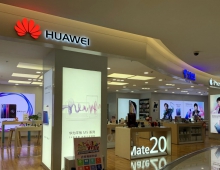
Japan to Release First Phones Based on ALP
If an agreement that was announced today bears fruit, Japan's NTT DoCoMo will release smartphones based on ALP -- Access, Co, Ltd.'s Linux-based operating system that is one of the successors to the Palm OS.
Access says its will make use of MOAP (Mobile Oriented Application Platform based on Linux) which is the FOMA mobile platform used by NTT DoCoMo, and will lead the development of a shared software platform that also conforms to specifications of the LiMo Foundation.
It will be working with ESTEEMO -- a company jointly owned by NEC and Panasonic -- on this project.
At this point, the five companies have only signed memorandum of understanding, but Access feels confident enough that it says it intends to begin marketing the commercial products resulting from these efforts during its 2009 fiscal year, which is only slightly offset from the calendar year.
"In January this year, NTT DoCoMo established the LiMo Foundation, together with key companies worldwide," said Kiyohito Nagata, a senior vice president at NTT DoCoMo. "The conclusion of this memorandum will substantially expedite the development of a shared platform based on LiMo Foundation specifications, as well as promote consideration of an operator pack by the five participating companies. In this way, the memorandum will contribute to the dissemination and growth of the Linux platform and the creation of an associated ecosystem. We expect it to enable the development of products that are even more attractive to NTT DoCoMo."
Great News for ALP
Today's announcement breathes new life into ALP, and is a strong indication that this platform won't die a quiet death, as some people had predicted.
ALP was originally created by PalmSource, the company responsible for developing and licensing the Palm OS. In 2005, PalmSource was acquired by Access, and an operating system that had been called "Palm OS for Linux" was re-named the "Access Linux Platform".
Many were skeptical about whether ALP would ever see the light of day because Palm, Inc. -- which had previously been far and away PalmSource's largest licensee -- is developing its own Linux-based operating system, and has no intention of using ALP.
Still, it now appears that at least one significant company will be releasing smartphones based on ALP, raising the possibility that others will, too.
It will be working with ESTEEMO -- a company jointly owned by NEC and Panasonic -- on this project.
At this point, the five companies have only signed memorandum of understanding, but Access feels confident enough that it says it intends to begin marketing the commercial products resulting from these efforts during its 2009 fiscal year, which is only slightly offset from the calendar year.
"In January this year, NTT DoCoMo established the LiMo Foundation, together with key companies worldwide," said Kiyohito Nagata, a senior vice president at NTT DoCoMo. "The conclusion of this memorandum will substantially expedite the development of a shared platform based on LiMo Foundation specifications, as well as promote consideration of an operator pack by the five participating companies. In this way, the memorandum will contribute to the dissemination and growth of the Linux platform and the creation of an associated ecosystem. We expect it to enable the development of products that are even more attractive to NTT DoCoMo."
Great News for ALP
Today's announcement breathes new life into ALP, and is a strong indication that this platform won't die a quiet death, as some people had predicted.
ALP was originally created by PalmSource, the company responsible for developing and licensing the Palm OS. In 2005, PalmSource was acquired by Access, and an operating system that had been called "Palm OS for Linux" was re-named the "Access Linux Platform".
Many were skeptical about whether ALP would ever see the light of day because Palm, Inc. -- which had previously been far and away PalmSource's largest licensee -- is developing its own Linux-based operating system, and has no intention of using ALP.
Still, it now appears that at least one significant company will be releasing smartphones based on ALP, raising the possibility that others will, too.





















